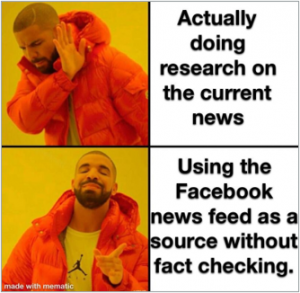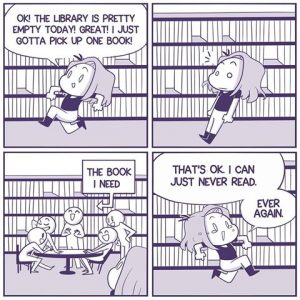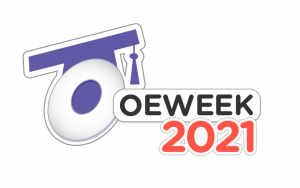We’ve done it, friends. We’ve reached the final frame in the ACRL’s Framework for Information Literacy in Higher Education: Searching as Strategic Exploration. Thanks for sticking with me!
“Searching as Strategic Exploration” addresses the part of information literacy that we think of as “Research.” It deals with the actual task of searching for information, and the word “Exploration” is a really good word to use because it’s evocative of the kind of struggle we sometimes feel when we approach research. It makes me think of people exploring a jungle with nothing but machetes and their wits, facing obstacles and navigating an uncertain path towards an ultimate goal (note: the goal is love and it was inside them all along). I also kind of imagine all the different Northwest Passage explorations, which were neat in theory, but which didn’t work out super well.
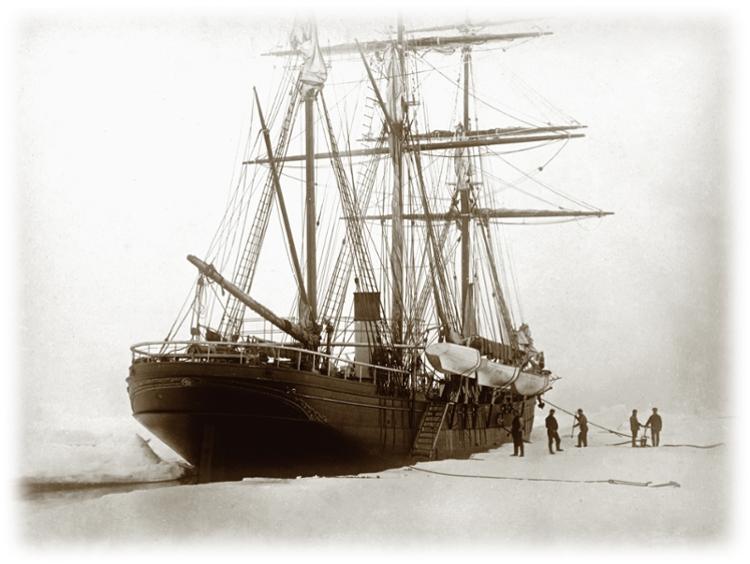
But research is like that! Sometimes we don’t get where we thought we were headed. But the good news is this: You probably won’t die from exposure or resort to cannibalism in your research. Fun, right?
The first part of any good exploration is identifying a goal. Maybe it’s a direct passage to “The Orient” (yikes) or the diamond the old lady threw into the ocean at the end of Titanic, or, more likely, the goal is to satisfy an information need. We’re just looking to find an answer or learn something new.
So great! Our goal is to learn something new. Now we make a strategy.
For many of your information needs you might just need to Google a question. There’s you’re strategy: throw your question into Google and comb through the results. You might limit your search to just websites ending in .org, .gov, or .edu. You might also take it a step further and, rather than type in an entire question fully formed, you just type in key words. So “Who is the guy who invented mayonnaise?” becomes “mayonnaise inventor.” Identifying keywords is part of a strategy, so is using a search engine and limiting the results you’re interested in.
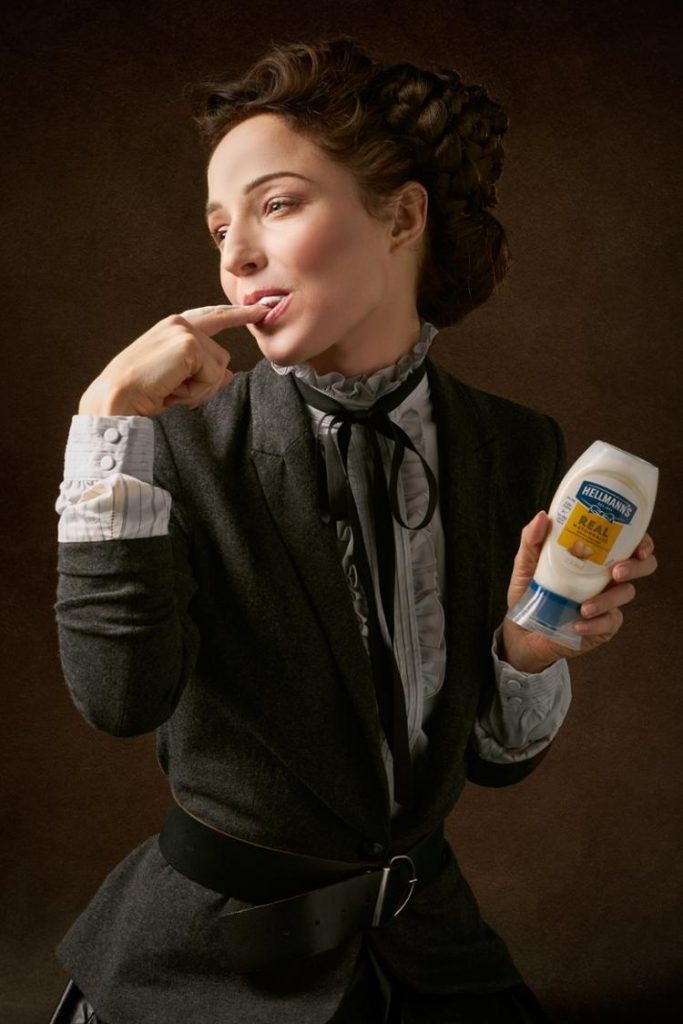
Googling “mayonnaise inventor” probably brings you to Wikipedia where we often learn that our goals don’t have a single, clearly defined answer. For example, we learn that mayonnaise was probably named after Port Mahon where the French won a battle in 1756, but we don’t know who actually made the mayonnaise, just when it was named. Prior to being named, the sauce was called “aioli bo” and was apparently in a Menorcan recipe book from 1745 written by Juan de Altimiras. That’s great for Altimiras, but the most likely answer is that mayonnaise was invented way before him and he just had the foresight to write down the recipe. Not having a single definite answer is an unforeseen obstacle tossed into our path that now affects our strategy. We now know we have a trickier question than when we first set sail.
But we have a lot to work with! We now have more keywords like Port Mahon and the French, and Wiki taught us that the earliest written mention of “mayonnaise” was in 1804, so we have 1804. Let’s see if we can find that original reference. Let’s take our keywords out of Wikipedia where we found them and voyage to the library’s Quick Search tool! At the Quick Search tool we type in our keywords: 1804, mayonnaise, and France. The first result is an ebook by a guy who traveled to Paris in 1804, so that might be what we’re looking for. Searching through the text I do, in fact, find a reference to mayonnaise on page 99! The author (August von Kotzebue) is talking about how it’s hard to understand menus at French restaurants, for “What foreigner, for instance, would at first know what is meant by a mayonnaise de poulet, a galatine de volaille, a cotelette a la minute, or even an epigramme d’agneau?” He then goes on to recommend just ordering the fish, since you’ll know what you’ll get (Kotzebue, 99).
That’s not super helpful, but it is funny! So I’d call that detour a win.
When we hit ends that we don’t think are successful, we can always retrace our steps and reevaluate our question. Dead ends are a part of exploration! We’ve learned a lot, but we’ve also learned that maybe “who invented mayonnaise?” isn’t the right question. Maybe we should ask questions about the evolution of French Cuisine or about ownership of culinary experimentation.
I’m going to stick with the history of mayonnaise for just a little while longer, but my “1804 mayonnaise france” search wasn’t as helpful as I’d hoped, so I’ll try something new. Let’s try looking at encyclopedias in a database called Credo Reference and just search “mayonnaise.” I can see that the first entry, “Minorca or Menorca” from The Companion to British History, doesn’t initially look helpful, but we’re exploring, so let’s click on it! It tells us that mayonnaise was invented in 1756 by a French commander’s cook and its name comes from Port Mahon where the French fended off the British during a siege (Arnold-Baker, 2001). That’s awesome! It’s what Wikipedia told us! But let’s corroborate that fact. I click on The Hutchinson Chronology of World History entry for 1756 which says mayonnaise was invented in France in 1756 by the duc de Richelieu (Helicon, 2018). I’m not sure I buy that. I could see a duke’s cook inventing mayonnaise, but I have a hard time imagining a duke and military commander taking the time to create a condiment.
But now I can go on to research the duc de Richelieu and his military campaigns and his culinary successes! Just typing “Duke de Richelieu” into the library’s Quick Search shows me a TON of books (16,742 as of writing this blog post) on his life and his influence on France. So maybe now we’re actually exploring Richelieu and the intertwined history of French cuisine in the lives of nobility.
Our strategy for exploring this topic had a lot of steps. Let’s break them down real quick:
- We asked a question or identified a goal
- We identified keywords and googled them
- We narrowed down our search results to only .gov, .org, and .edu websites
- We learned some background information and got new keywords from Wikipedia and had to reevaluate our question
- We followed a lead to a book but hit a dead end when it wasn’t as useful as we’d hoped
- We identified an encyclopedia database and found several entries that support the theory we learned in Wikipedia. This forced us to reevaluate our question again
- We identified a key player in our topic and searched for him in the library’s Quick Search Tool and the resources we found made us reevaluate our question yet again!
Other strategies could include looking through an article’s reference list, working through a mind map, outlining your questions, or recording your steps so you don’t get lost– whatever works for you!
The Takeaways:
Exploration is tricky. Sometimes you circle back and ask different questions as new obstacles arise. Sometimes you have a clear path and you reach your goal instantly. But you can always retrace your steps, try new routes, discover new information, and, maybe, you’ll get to your destination in the end.
We’ve also learned that if you can’t understand a menu in French, you should probably just order the fish.
